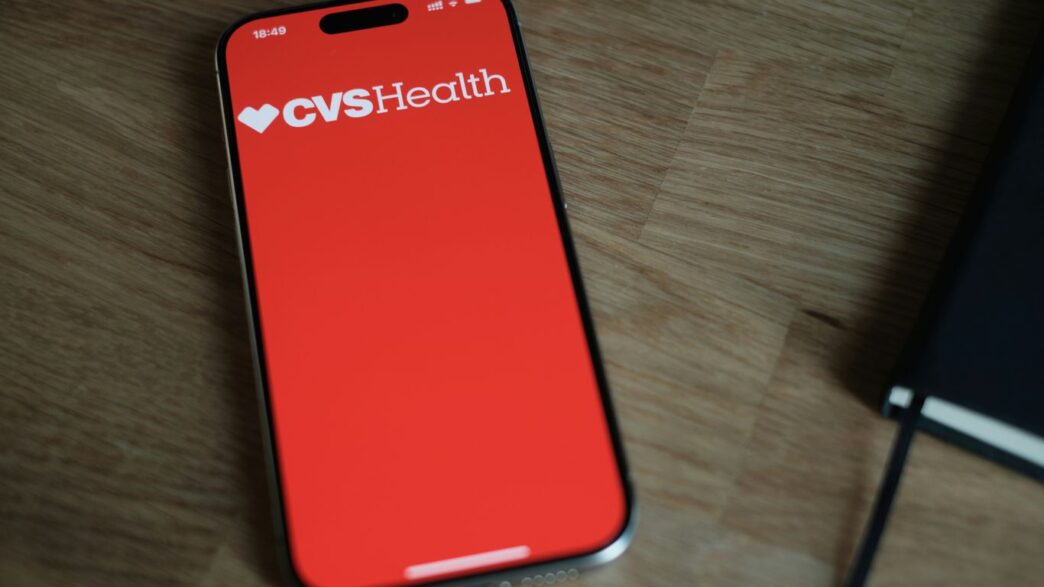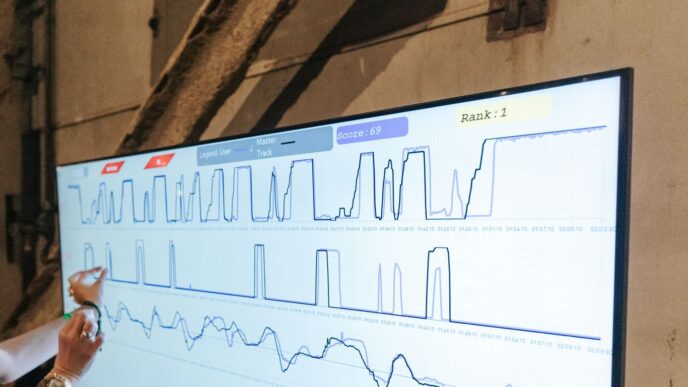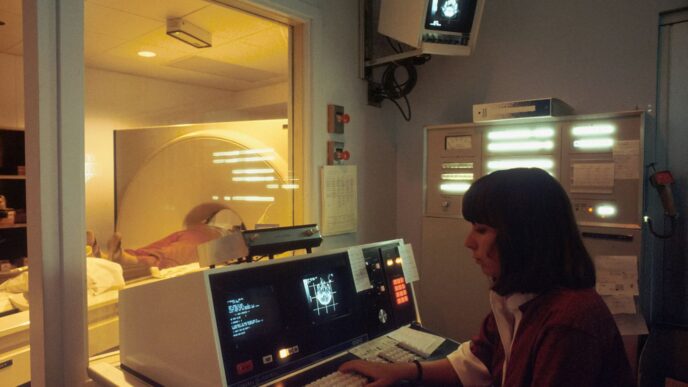If you’ve ever wished getting medical advice was as easy as sending a text, the Babylon Health App might be the answer. It’s a healthcare app that uses AI plus real doctors to help people manage their health from their phones. In 2025, Babylon Health App keeps growing and changing, adding more ways for people to get care no matter where they are. With everything from video calls to reminders to take your meds, it’s trying to make healthcare simpler and more personal. Let’s take a closer look at what the Babylon Health App actually does, why people use it, and what makes it different from other health apps out there.
Key Takeaways
- Babylon Health App combines AI tools with real doctors, giving users quick answers and professional advice.
- Setting up the app is simple, and it lets you personalize your health profile for better results.
- You can track symptoms, manage prescriptions, and even have virtual consultations all in one place.
- The app works well with wearables, making it easier to monitor daily health habits and routines.
- Babylon Health App focuses on privacy and keeps users informed, so you always know how your data is used.
Getting Started With the Babylon Health App

Babylon Health App makes it pretty simple to jump into the world of digital healthcare. Unlike some apps that feel like a maze just to sign up, this one guides you through it step by step. Here’s what you need to know when getting started.
Installation and Account Creation
First up: getting the app on your phone. You can find Babylon Health on both the iOS App Store and Google Play Store, so no matter which phone you have, you’re good to go. Once it’s downloaded, installation is automatic—just tap through the prompts.
Setting up your account involves:
- Entering your basic details (name, age, email—a couple minutes, tops).
- Creating a secure password (the usual mix of letters and numbers).
- Confirming your details with a verification code, sent to your phone or email.
That’s it. If you run into any trouble, Babylon offers a handy in-app help guide for common setup problems, like login errors or code delays.
Personalizing Health Information
After you’ve got your account, the app asks for your health basics. This isn’t just for the sake of it—these details shape every recommendation and assessment Babylon gives you. Here’s what you’ll need to fill in:
- Medical history
- Allergies
- Current medications
- Ongoing conditions (if any)
Don’t worry if you can’t remember everything right away; you can update your profile later. The more complete the information, the more personalized suggestions you’ll get.
Navigating the Main Dashboard
Babylon’s dashboard is built for clarity. The main screen shows your health summary at a glance—recent check-ins, upcoming appointments, and links to key features. There’s no clutter, just the basics.
Here’s a quick breakdown of what you see on the dashboard:
| Feature | What It Shows |
|---|---|
| Health Status | Your most recent checkup highlights |
| Appointments | Next scheduled virtual visits |
| Consultations | History of previous doctor chats |
| Notifications | Upcoming reminders and alerts |
Navigation is pretty much one-tap. Every tool is labeled plainly; no cryptic icons to decode. If you want, you can adjust how you see health data or set which notices you want to be alerted about—handy if you don’t like getting pinged all day.
Overall, getting the Babylon Health App up and running isn’t much of a hassle. It honestly feels more like setting up a streaming account than anything to do with healthcare. Perfect if you’re looking for a no-nonsense way to take control of your health info.
Core Features That Define Babylon Health App
Babylon Health doesn’t just put a doctor’s office in your pocket—it adds a layer of smart convenience that’s hard to find anywhere else. Here’s what stands out in 2025:
AI-Powered Symptom Checker
The backbone of the app is its AI-driven symptom checker, designed to help users understand potential causes of their symptoms almost instantly. Here’s how it works:
- You answer a series of straightforward questions about your health and current issues.
- The AI compares your answers against a massive medical database.
- It quickly offers possible explanations and advice about next steps, like whether you should book a virtual appointment right away or wait and monitor symptoms.
People say it saves them a lot of stress, especially late at night or on weekends, when it’s tough to reach a doctor. It’s not a replacement for medical professionals, but it can help you decide what to do next.
Virtual Video Consultations
The Babylon Health app makes seeing a doctor or specialist easy and fast, without having to wait weeks. Instead of trying to sync schedules or sitting in a waiting room, you:
- Choose from available appointment times that actually fit your day.
- Connect to a physician through a secure video link.
- Share symptoms, ask questions, and discuss your health—all from home or even on the go.
It’s a level of flexibility and accessibility that changes how people handle day-to-day healthcare problems.
Quick Stats: Video Consultation Usage
| Year | Avg. Wait Time (minutes) | Number of Users (millions) |
|---|---|---|
| 2023 | 15 | 8 |
| 2025 | 8 | 13 |
Numbers show why more people are choosing telemedicine now than ever before.
Integrated Health Records and Prescription Management
Babylon Health isn’t only about fast responses. Keeping all your medical records and prescriptions in one place is a relief:
- All lab results, past consultations, and prescriptions show up in your profile for easy reference.
- There’s a feature for medication reminders and direct prescription renewals—no more awkward phone calls to busy clinics.
- You can share your records easily if you need to see another doctor.
This means no more shuffling through piles of paper or trying to remember which doctor said what. Everything you need for personal health management is right there, organized and up to date.
Together, these features make Babylon Health more than just an app—it’s a complete virtual clinic, designed for people who want quick answers, easy appointments, and everything health-related in one tidy package.
User Experience and Customization

Easy-to-Use Interface
When you first open the Babylon Health app, it feels pretty straightforward. The dashboard is clean—there’s not much wasted space or clutter. You can check your health summary, see upcoming appointments, and find messages without digging through endless menus. The buttons are big enough if you’re using your phone, and the text is easy to read, even if you left your glasses in the other room. The entire design focuses on making things simple for everyone, not just tech-savvy folks. You don’t have to guess where to find prescription info or how to book a doctor call; it’s all laid out clearly.
A few highlights of the interface:
- Large, touch-friendly buttons and simple icons
- Consistent layout and color scheme across menus
- Quick access to main features from the home screen
Personalized Notifications and Reminders
Keeping up with your healthcare can be tough, especially if you have meds to take or appointments to make. Babylon Health tries to help. You can choose which reminders and alerts you want—maybe a nudge before it’s time for a checkup, or a ping to refill your prescription. It’s up to you. For those who want fewer notifications, the app lets you turn down or switch off less important ones.
Common reminders you can set:
- Medication timing (daily, weekly, etc.)
- Appointment confirmations and check-in alerts
- Follow-ups for test results or consultations
| Notification Type | Customizable? | Default Setting |
|---|---|---|
| Medication Reminders | Yes | On |
| Appointment Notifications | Yes | On |
| General Health Tips | Yes | Optional (Off) |
Health Data Input and Tracking
You don’t have to be a stats geek to track your health here. The app lets you log stuff like blood pressure, blood sugar, sleep, and exercise. There’s usually a "+" button or something similar where you can put in your recent numbers, either by hand or (sometimes) by letting the app pull data from your fitness tracker. After a while, you start seeing trends, which the app organizes into simple graphs.
Here’s what makes this work for most people:
- Manual input is simple—just a couple of taps for each reading.
- Option to connect with popular wearable devices like Fitbit or Apple Watch.
- Historical data is displayed as color-coded lines or bars, giving you a quick idea if things are headed the right way.
Babylon Health lets you decide how involved you want to be—log every snack and step, or just check in once a week. Either way, you can adjust the experience to match your needs, which is nice if you don’t want to be glued to your phone all day.
Integrating Babylon Health App Into Daily Routines
Babylon Health App isn’t just something you open when you feel a bit off. It’s made for daily life, almost like having a checkup buddy in your pocket. Here’s how it fits into the groove of your day-to-day schedule.
Routine Health Monitoring
You don’t have to be sick to use Babylon. It can be a part of your everyday habits:
- Log daily symptoms or mood changes so you can spot trends before anything snowballs.
- Keep an eye on sleep, activity, and dietary information right in the app.
- If you have a chronic condition like asthma or diabetes, the app can help track how you’re feeling in real time so nothing slips through the cracks.
Utilizing Reminders for Proactive Care
Babylon Health really shines when you use the reminders for things like taking medicine or checking your blood pressure. Setting up alerts only takes a minute and can save you from missing something important.
- Set up pill reminders—never forget your morning dose again.
- Book recurring wellness checks or follow-ups.
- Get nudges for hydration, daily steps, or other healthy habits you choose.
Connecting With Wearable Devices
The app doesn’t exist in a vacuum—if you’re already using a fitness tracker or smartwatch, you can often connect it to Babylon. It’ll pull in your step count, heart rate, and sleep info so you don’t have to type it out.
| Supported Device Types | Data It Can Sync |
|---|---|
| Smartwatches (Apple, Samsung, etc) | Steps, heart rate, sleep |
| Fitness bands (Fitbit, Garmin) | Activity, calories, sleep |
| Bluetooth devices (BP cuff, thermometer) | Vitals, measurements |
With everything in one place, you’ll see the big picture—sometimes your sleep does tank after a stressful week, or your blood pressure drops with regular walking. Integrating Babylon with these little widgets makes health tracking feel less like work, and more like a part of your regular routine, just like checking the weather before heading out.
Empowering Patients Through AI and Human Collaboration
The Babylon Health App in 2025 continues to combine artificial intelligence with support from real healthcare professionals. This blend offers practical help, makes healthcare more personal, and keeps everything easy to understand. Below, I’ll break down how this partnership benefits everyday users, based on experience and honest feedback.
Personalized Healthcare Recommendations
Babylon uses advanced AI to make sense of your health data—symptoms, daily habits, and even info synced from wearables. The AI doesn’t just give random suggestions. Instead, it picks up on your health patterns, reviews your meds, and even factors in your family history. You end up with advice that actually makes sense for you instead of some generic health tip.
Here’s what happens:
- Analyze your reported symptoms against its huge database.
- Review trends from wearable devices or manual tracking (steps, heart rate, sleep, etc.).
- Suggest action steps, from lifestyle changes to when to book a chat with a real professional.
This proactive approach can be compared to what advanced virtual assistants do in other industries—making life smoother and helping you understand what’s happening behind the scenes; major tech is moving this direction, too, as seen with AI-powered robots and smart hubs.
Role of Human Experts in Care
Even with great AI, there are times when only a human will do. Babylon keeps professionals—doctors, nurses, pharmacists—in the loop. The app refers you to a live consultation whenever it picks up on something complex, risky, or just out of the ordinary. Here’s how the two sides work together:
- AI triages symptoms: Sorts mild from severe, sends urgent stuff to professionals right away.
- Healthcare providers review findings: They double-check the AI’s suggestions and fill in gaps the computer can’t catch.
- Ongoing support: After your appointment, both systems keep track, so nothing slips through the cracks.
Transparency and Informed Decision-Making
Nobody likes feeling left out of their own health decisions. Babylon puts clarity front and center:
- Explains why it recommends a certain step (“We recommend seeing a doctor because your reported symptoms match X pattern.”)
- Offers crystal-clear, jargon-free breakdowns of options, risks, and benefits
- Clearly identifies when a human versus an AI is giving the advice, so you always know who’s responsible
| What You See | Who’s Giving Advice | Can You Ask Questions? |
|---|---|---|
| AI-powered suggestions | Babylon AI | Yes |
| Virtual doctor consult | Healthcare provider | Yes |
| Follow-up action items | Usually AI | Yes |
If you’ve ever felt lost after a doctor’s appointment, these features make sure that doesn’t happen again. Users also have the ability to ask for a complete summary, ensuring they’re never left in the dark about their health plan or data. This kind of transparency is what’s setting the Babylon app apart—especially as people want more control and peace of mind regarding their own care.
All in all, this combination of AI and human support just means you spend less time worrying and more time focused on what actually matters—feeling better.
Impact on Healthcare Delivery and Accessibility
The Babylon Health App isn’t just another tool on your phone—it’s totally changing how folks reach out for healthcare and how fast they get the care they need.
Enhancing Primary Care Access
More people can get seen by a doctor now than ever before, and it’s mostly thanks to telehealth platforms like Babylon. Instead of waiting weeks for a slot at the clinic, you can book a video visit and talk to someone that day. Plus, the AI symptom checker is always available, even at 2 AM when most clinics are closed.
- No travel needed—your home becomes the waiting room.
- More flexibility for parents, caregivers, or people who work odd hours.
- If you live far from a doctor’s office, all you need is a phone or computer and an internet connection.
Here’s a quick look at how Babylon stacks up compared to traditional clinics:
| Babylon App | Traditional Primary Care | |
|---|---|---|
| Wait Time | 0-2 days (often same-day) | 7-20 days |
| Hours | 24/7 | 9am–5pm weekdays |
| Location | Anywhere with internet | Physical clinic only |
Supporting Remote Patient Monitoring
Babylon isn’t just for chatting with a doctor—there’s real tech here that lets patients track blood pressure, sugar readings, or medication use from home and share that with their care team. This is super important for people managing diabetes or heart issues. Instead of old-school pen-and-paper logs, the app does the recordkeeping and pushes data straight to the health records.
- Alerts flag worrisome trends for early follow-up
- Real-time feedback can help patients fix problems fast
- Doctors can review trends between visits, sometimes spotting issues before things get serious
Promoting Corporate Wellness Initiatives
A lot of workplaces now offer Babylon to their employees as part of their health benefits. This means:
- Employees can get confidential medical advice without leaving work (or home).
- Companies get fewer sick days since health problems are handled earlier.
- Anonymous wellness stats help employers run better health programs—like workshops or stress management support.
Some companies even report higher job satisfaction and lower insurance costs, just because their staff is using Babylon. It’s simple things—getting that rash checked out before it’s a real problem, or having reminders for vaccines—that keep people healthier and at work.
In short, Babylon isn’t just making healthcare easier to reach, it’s starting to change the way people think about getting help—turning something that was stressful and slow into part of everyday life.
Best Practices for Maximizing Babylon Health App Effectiveness
Getting the most out of the Babylon Health app isn’t just about downloading it – it’s using it in a way that fits your real life. These tips will help you take advantage of everything the app offers, keeping your health info accurate, secure, and useful.
Tips for Engaging With App Features
Jumping in and exploring what’s available can make a big difference. Here are a few ways to become a savvy Babylon Health user:
- Try out all the features, like the AI symptom checker, video consultations, and health tracking tools—even if you don’t need them right away.
- Set up reminders for meds, appointments, or daily check-ins, so you’re less likely to forget important tasks.
- Explore educational resources within the app. It’s not just about fixing problems but learning how to stay on top of your health. Many people use the app as part of corporate wellness programs, showing it has value beyond just occasional doctor visits.
Maintaining Up-to-Date Health Information
Keeping your profile current is one of the best ways to make sure any advice or recommendations you get are relevant. Here’s how to stay organized:
- Regularly update your health records, especially after doctor visits or if your medication changes.
- Enter new symptoms or health measurements as soon as you notice them—waiting can mess up any patterns the app’s tracking.
- Review your health dashboard every week, even if nothing seems pressing. Little changes matter over time.
| What to Update | How Often |
|---|---|
| Medication Details | When changes |
| Allergies | When changes |
| Symptom Updates | As needed |
| General Health Stats | Weekly |
Security and Privacy Considerations
Don’t forget—health info is private for a reason. Be smart about how you use the app:
- Always use a strong password for your account and never share it.
- Enable two-factor authentication if it’s available.
- Before updating, check what permissions you’re granting. More features often mean more data access, so think it through.
By following these best practices, you’ll make sure the Babylon Health app stays both safe and helpful. Regular engagement, organization, and a few smart security steps make it a tool that fits right into your routine without extra hassle.
Conclusion
Wrapping things up, Babylon Health stands out in 2025 as a practical tool for anyone looking to manage their health from their phone. The app brings together AI and real doctors, making it easier to get answers and advice without waiting weeks for an appointment. Setting it up is pretty simple, and the features—like symptom checking, video calls, and health tracking—are easy to use, even if you’re not super tech-savvy. What really makes Babylon different is how it puts you in the driver’s seat, letting you keep tabs on your health and make informed choices. Sure, it’s not a replacement for every doctor’s visit, but for day-to-day health questions and quick check-ins, it’s hard to beat. As digital health keeps growing, apps like Babylon are likely to become a regular part of how we look after ourselves. If you’re curious about trying a new way to manage your health, this app is worth a look.














